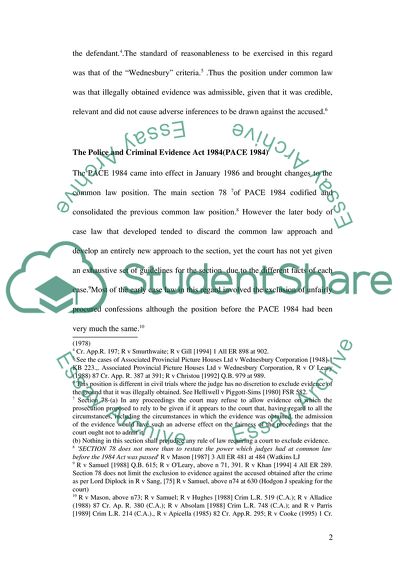Cite this document
(Are Defendants in Criminal Trials Sufficiently Protected against the Coursework, n.d.)
Are Defendants in Criminal Trials Sufficiently Protected against the Coursework. https://studentshare.org/law/1710939-are-defendants-in-criminal-trials-sufficiently-protected-against-the-use-of-improperly-obtained-evidence
Are Defendants in Criminal Trials Sufficiently Protected against the Coursework. https://studentshare.org/law/1710939-are-defendants-in-criminal-trials-sufficiently-protected-against-the-use-of-improperly-obtained-evidence
(Are Defendants in Criminal Trials Sufficiently Protected Against the Coursework)
Are Defendants in Criminal Trials Sufficiently Protected Against the Coursework. https://studentshare.org/law/1710939-are-defendants-in-criminal-trials-sufficiently-protected-against-the-use-of-improperly-obtained-evidence.
Are Defendants in Criminal Trials Sufficiently Protected Against the Coursework. https://studentshare.org/law/1710939-are-defendants-in-criminal-trials-sufficiently-protected-against-the-use-of-improperly-obtained-evidence.
“Are Defendants in Criminal Trials Sufficiently Protected Against the Coursework”. https://studentshare.org/law/1710939-are-defendants-in-criminal-trials-sufficiently-protected-against-the-use-of-improperly-obtained-evidence.


